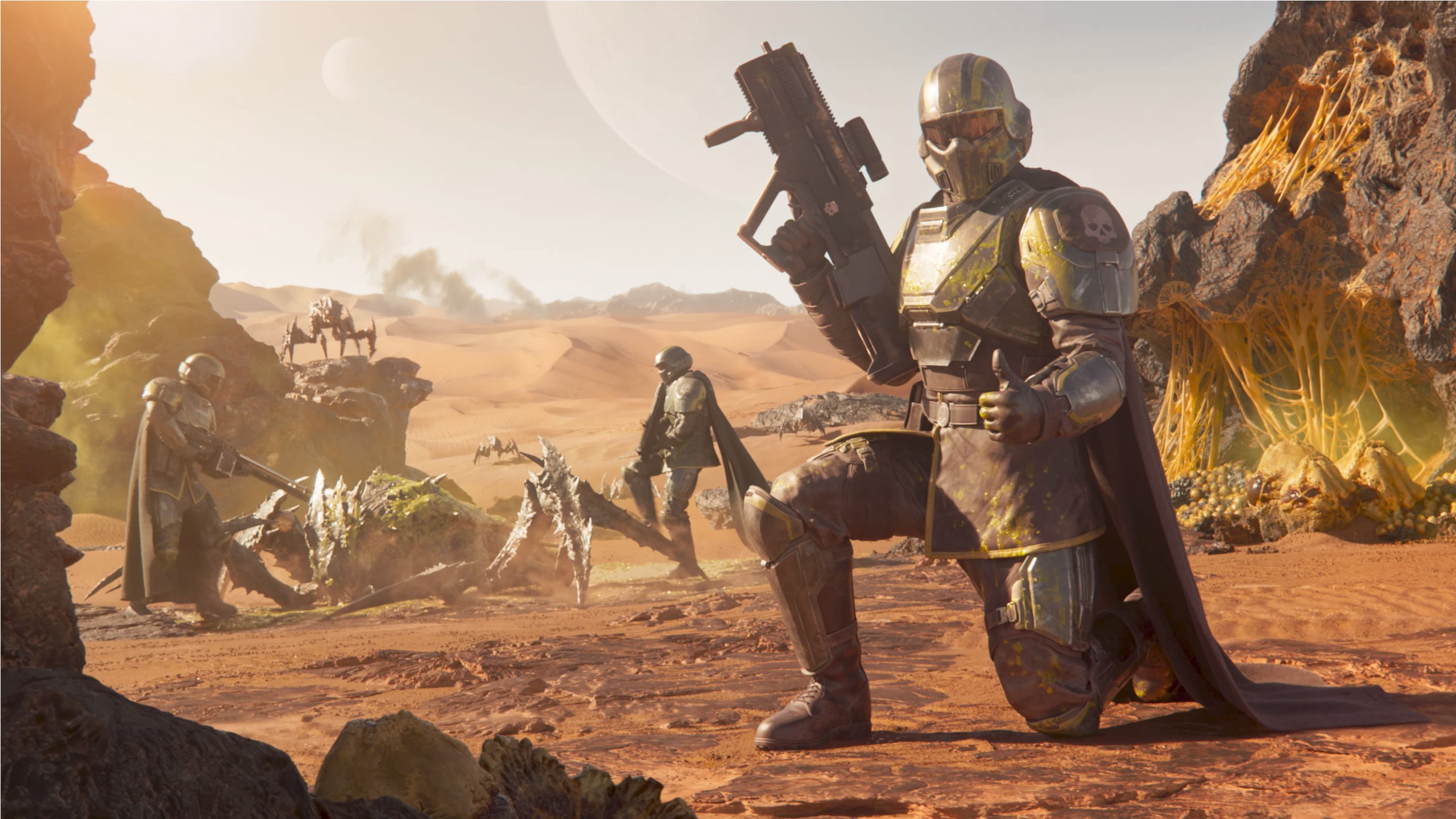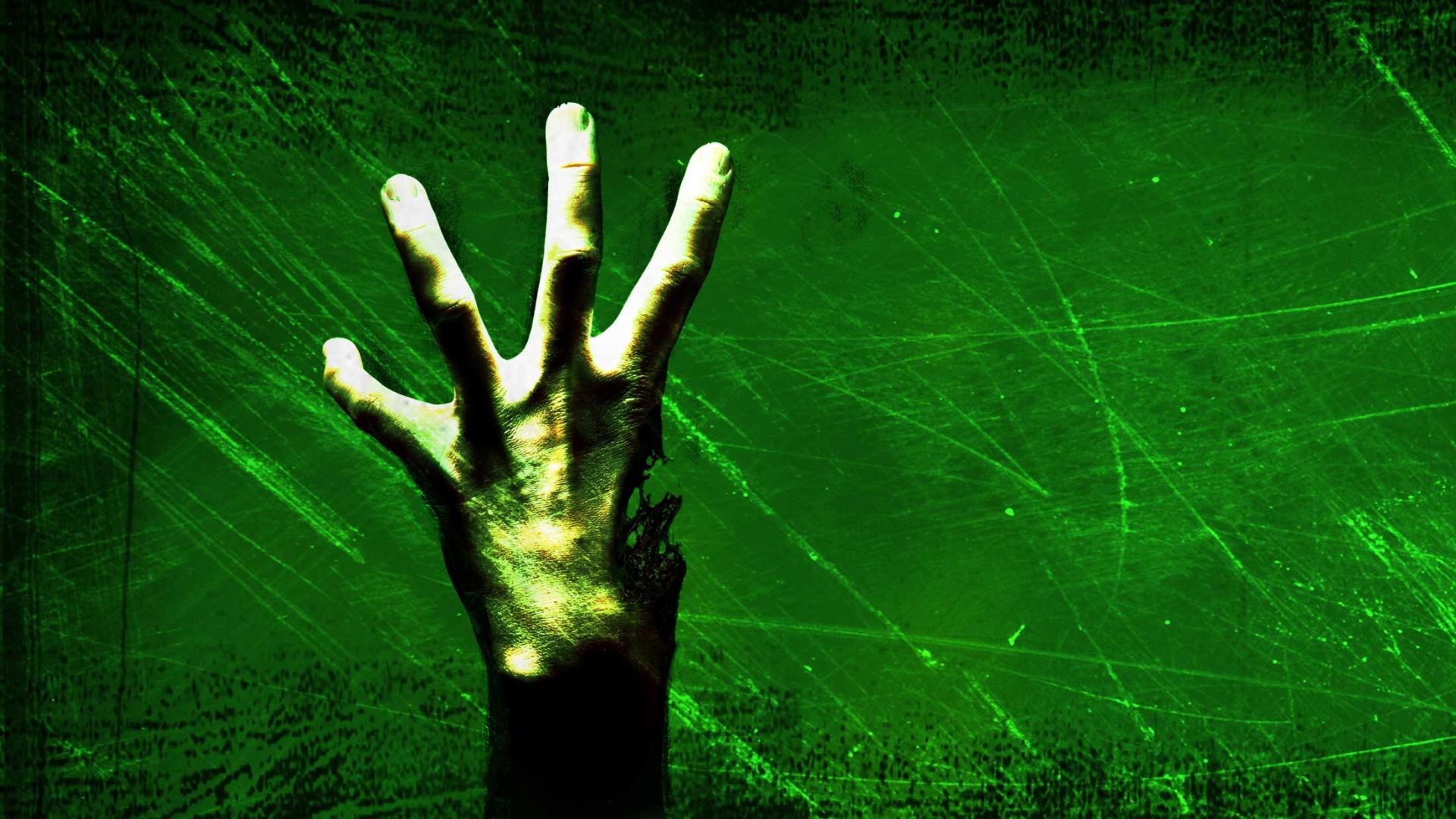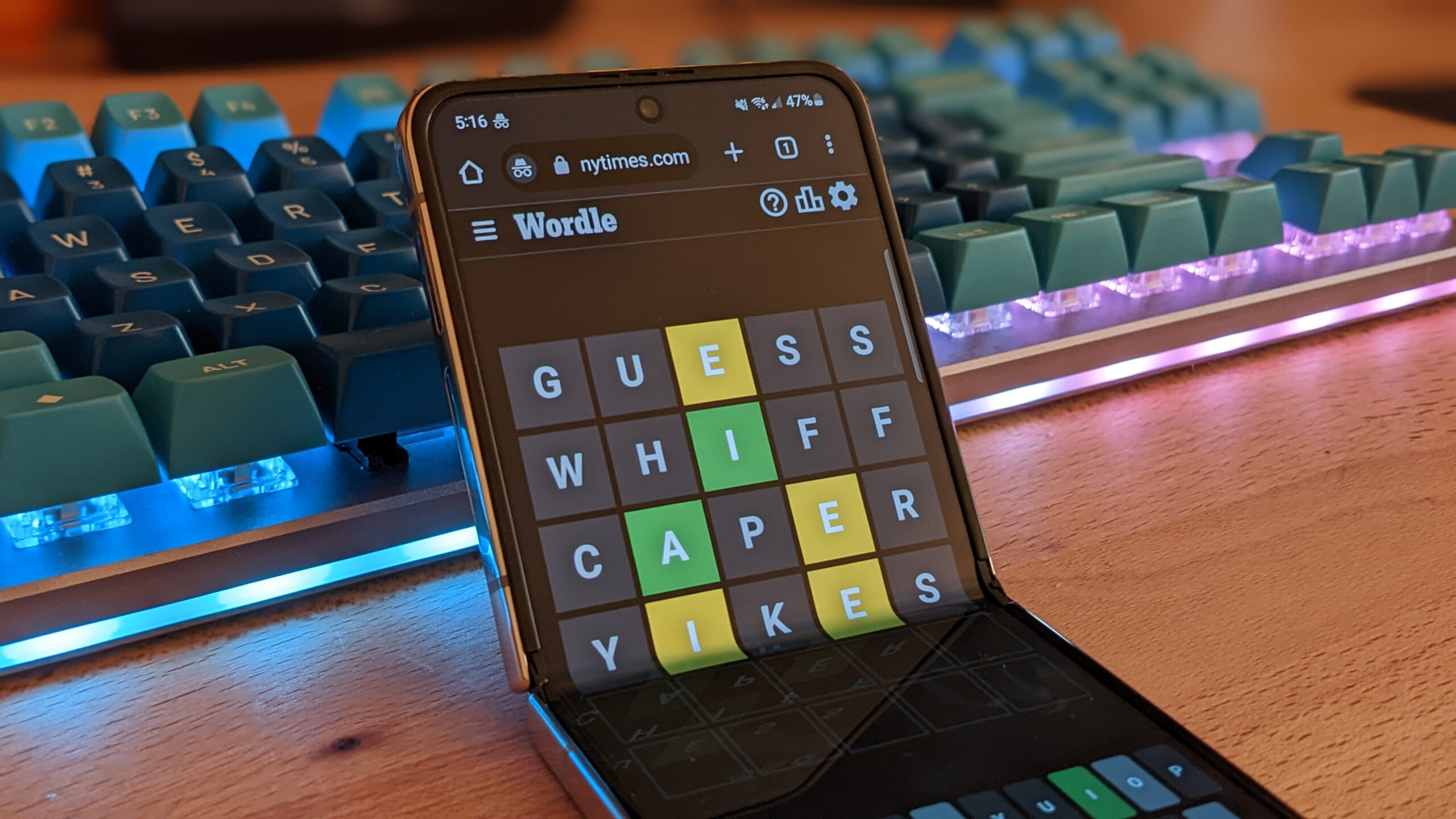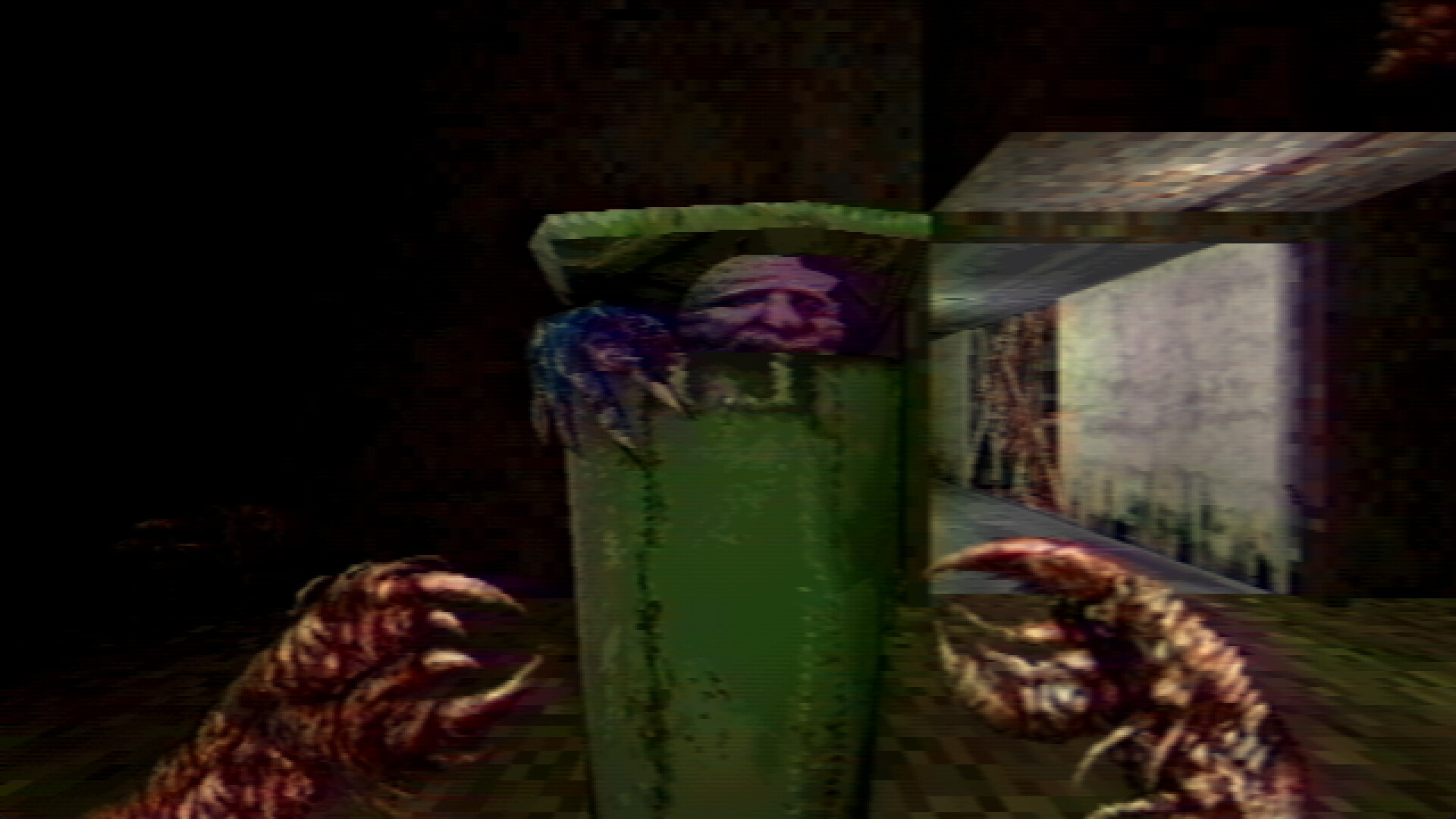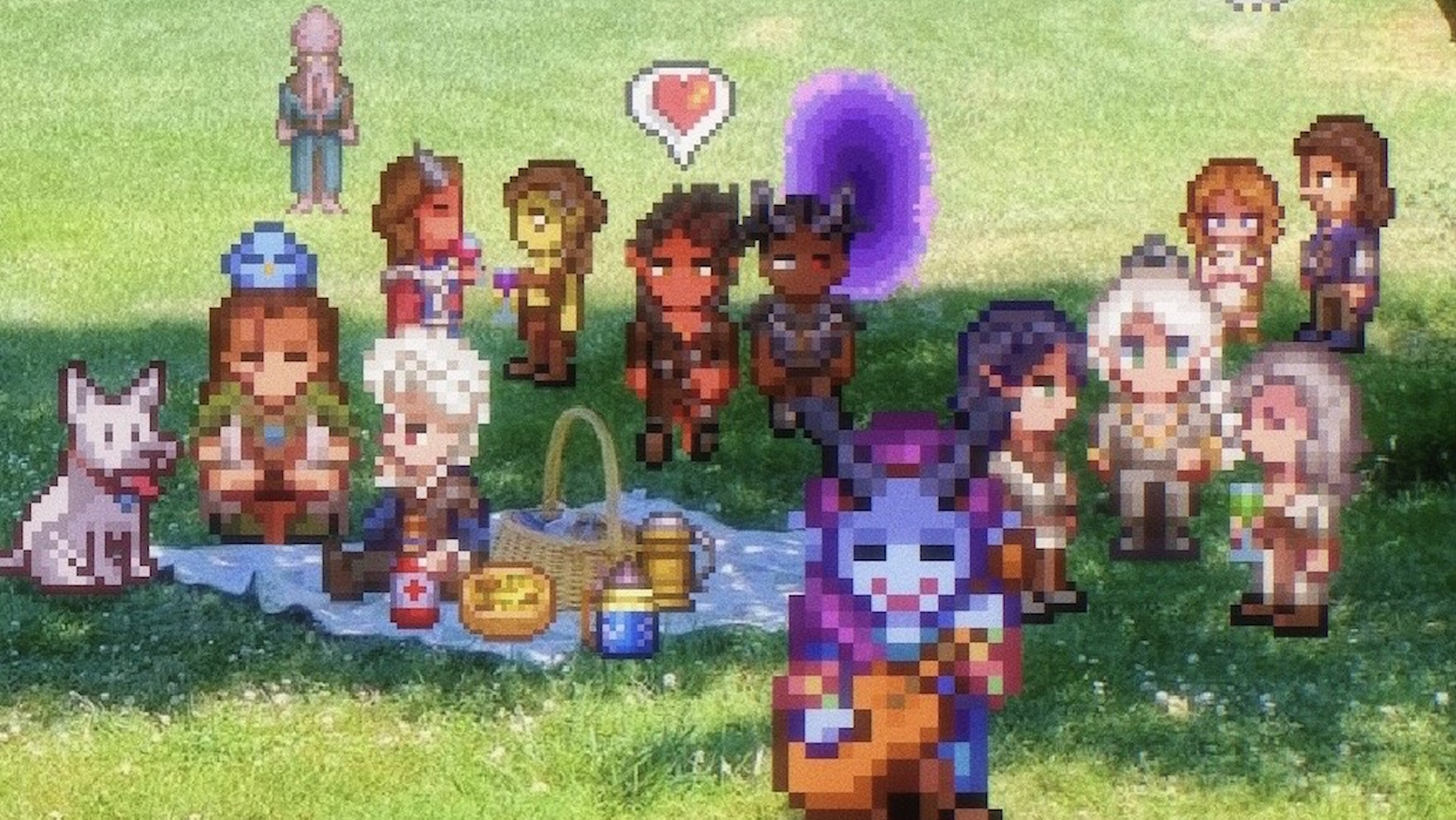Years of videogames operating like shopping malls made me assume that Helldivers 2‘s day-one monetization would be the same old story: battle passes, boosters, and cosmetics that cost as much as the game itself. It does give that impression at first—Helldivers 2 has two battle passes out the gate, a rotating cosmetics shop, and actual weapons and armor you can only get by buying the premium $10 pass.
On paper, that’s standard or even slightly outside of what most of us would deem acceptable upselling. But 20 hours in, Helldivers 2’s monetization isn’t bothering me. It’s actually pretty reasonable, and as far as $40 games with microtransactions go… dare I say refreshing?
Here’s why: There’s a free battle pass (Helldivers 2 calls them “warbonds”) and a paid one. Warbonds are progressed with medals awarded for completing missions or found on planets. Warbonds stand out from a traditional battle pass because they’re not just a way to fill a closet with cosmetics you never use (though there is some of that), they’re also how you unlock key gameplay items like new guns, grenades, and armor types. Along with Stratagems (the roster of unlockable airstrikes and airdrops you can call in), warbonds are one track of the progression system. Play more, unlock stuff.
With 80 items across eight pages, the free warbond contains the majority of stuff currently in the game. The $10 premium warbond adds an additional 24 items. The paid warbond only has one entirely new weapon, a revolver—the rest are variants of existing weapons with elemental damage types and significant tradeoffs. These are side-grades, not outright upgrades. The explosive ammo version of the Liberator assault rifle, for example, does 100% more damage to soft weak points (like the backs of Chargers) but fires way slower and has a smaller magazine.
The premium warbond feels inessential, but meaningful enough if you want to experiment with the full arsenal.
Some player-friendly decisions you don’t see often:
You can’t skip tiers or buy medals to speed through a warbondThe free warbond contains 700 Super Credits, enough to shave around $7 off the paid warbondYou can also find Super Credits in low quantities by playing missionsWarbonds never expire
I dig it. Including loadout items in the warbond makes it matter more than any battle pass I’ve ever owned, and the fact that it’ll never expire means warbonds are basically little expansions.
“This is important to us: the Warbonds are NOT a pay-to-win, FOMO-driven system,” Arrowhead said in a recent blog post. “Instead, the gear in the Warbonds just keeps accumulating. We will not retire earlier Warbonds as new ones are released—you can pick them up and complete them at any time.”
(Image credit: Arrowhead Game Studios)
It’s nice to see a new multiplayer shooter push back against the prevailing seasonal model that holds our free time hostage. Like Halo Infinite before it, Helldivers is proof that the anxiety of $10 wasted on a 3-month battle pass you don’t have time for doesn’t have to be the norm. In a vacuum Helldivers is as focused on monetization as any modern game, but by comparison, it’s uncommonly generous.
Just look at the store tab—sorry, the Superstore tab. The most expensive outfit in the store right now is ~$4.50, its matching helmet is ~$2.50, and the armor next to it is ~$3. Tab over to the Super Credits currency page and you’ll find another small surprise: a $1.99 bundle that allows you to “top off” your wallet with 150 credits if you’re just short. The smallest purchase you can make in most games is $5 or $10 worth of credits, ensuring that you always overspend for the thing you want.
(Image credit: Arrowhead Game Studios)
Considering you naturally accrue Super Credits by playing missions and how generally low prices are, Helldivers 2 is the least I’ve felt pressured to pony up cash in a service game in years. So of course I’ve bought every piece of armor that’s appeared in the store since launch. Turns out I’m an easy mark when games don’t hound me like a used car salesman.
To be fair, Helldivers’ cosmetics aren’t the status symbols they are in other games, either. So far, premium armor sets aren’t any more detailed or special than the armor you can get for free—perhaps a concession by the studio that indicates cosmetics aren’t a major focus at the moment.
Still, there are things not to like about Helldivers 2’s monetization scheme. As reasonable as they are, Super Credit bundles and store prices misalign enough that you’ll have to overspend on $5 worth of credits to get a $3 item when starting at zero. Nothing new there, but maybe the next live service “innovation” should be paying exactly what an item costs. Like other games, premium items have timers and rotate to encourage you to log in daily (despite that earlier comment from the studio, Helldivers isn’t totally free of FOMO).
Helldivers 2 is the sort of game that can only get better the more Arrowhead adds to it, and I’m willing to pay for good expansions that don’t make me rush to enjoy them.







